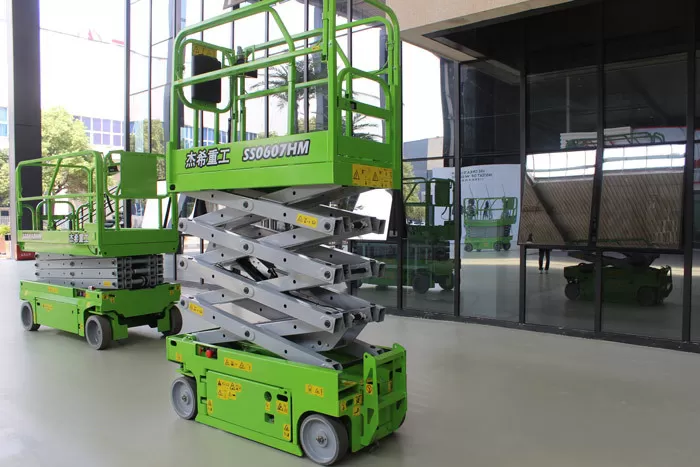
Platform machinery has emerged as a building block in the realm of modern industrial processes, revolutionizing the way we approach manufacturing, construction, and various other sectors. This innovative technology represents a crucial shift towards efficiency, safety, and scalability in industries worldwide. In this article, we will delve into the development, functionality, and the unique impact that platform machinery has had on diverse sectorsThe reasoning behind platform machinery has evolved significantly over the years, driven by technological advancements, changing industrial needs, and a growing increased exposure of safety and efficiency. In times past, manual labor and traditional tools focused industrial processes. However, as 升降台 expanded and the demand for higher productivity increased, the requirement for more sophisticated machinery became evident. The advent of hydraulics, consumer electronics, and computerization marked a turning point in the development of platform machinery. This allowed for the development of machinery with enhanced precision, control, and automation. From simple platforms used for lifting and carrying materials to complex systems with integrated receptors and intelligent controls, platform machinery has come a long wayPlatform machinery involves a wide array of equipment designed to perform specific tasks within various industries. Some of the key benefits include: Lifting and Access: One of the primary functions of platform machinery is to provide elevated access for tasks such as maintenance, construction, and material handling. Aerial work platforms, scissor comes, and cherry pickers are examples of machinery designed for safe and efficient access to elevated areas.
Material Handling: Platform machinery plays an important role in material handling processes across industries. Conveyor systems, automated well guided vehicles (AGVs), and robot platforms are applied for the seamless movement of garbage and finished products within manufacturing facilities. Construction and Earthmoving: In the construction sector, platform machinery takes the form of cranes, excavators, and bulldozers. These machines enable the efficient lifting of heavy loads, excavation of materials, and by using of areas, adding to the timely end of construction projects. Storage place Automation: With the rise of e-commerce, storage place automation has become increasingly important. Automated storage and access systems (AS/RS), robot picking systems, and conveyor-based selecting machines are examples of platform machinery that improve storage place operations. The integration of platform machinery into various industries has had a unique affect efficiency, safety, and overall productivity. Increased Efficiency: Platform machinery streamlines operations by automating repetitive tasks, reducing manual labor, and enhancing precision. This leads to increased efficiency in production processes, ultimately converting into higher output and reduced in business costs.
Enhanced Safety: Safety is a paramount concern in industrial settings. Platform machinery, equipped with advanced safety features and controls, lowers the risk of accidents and injuries. For instance, aerial work platforms are made with safety railings, harness addition points, and emergency lineage things. Scalability and Flexibility: Modern platform machinery is designed to be scalable and adaptable to changing industrial needs. This flexibility allows businesses to regulate their production processes easily, helpful changes in demand and responding to market character. Cost benefits: While the initial investment in platform machinery may be substantial, the long-term cost benefits are significant. Reduced labor costs, increased in business efficiency, and minimized downtime contribute to an encouraging return over time. Environmental Impact: Some platform machinery is designed with eco-friendly features, such as energy-efficient systems and reduced emissions. This aligns with the growing increased exposure of sustainable practices in modern industries, adding to a lower environmental impact As technology continues to advance, several trends are expected to shape the future of platform machinery:
Integration of Artificial Brains (AI): AI-powered algorithms will improve the decision-making capabilities of platform machinery, optimizing processes and improving overall performance. Internet of Things (IoT) Connection: The integration of IoT technologies will enable real-time monitoring and communication between different machinery components, leading to predictive maintenance and improved efficiency. Autonomous Platforms: The development of autonomous platform machinery, equipped with receptors and intelligent systems, will revolutionize industries by reducing the requirement for human involvement in some tasks. Customization and Modular Design: Platform machinery with modular components permits greater customization to meet specific industry requirements, promoting flexibility and scalability. Platform machinery has evolved from simple lifting devices to complex, technologically advanced systems that drive efficiency, safety, and productivity across diverse industries. Its affect modern industrial processes is undeniable, providing answers to challenges asked by growing market demands. Even as look to the future, the continued integration of cutting-edge technologies promises to help expand improve the capabilities of platform machinery, opening new possibilities for industries worldwide.